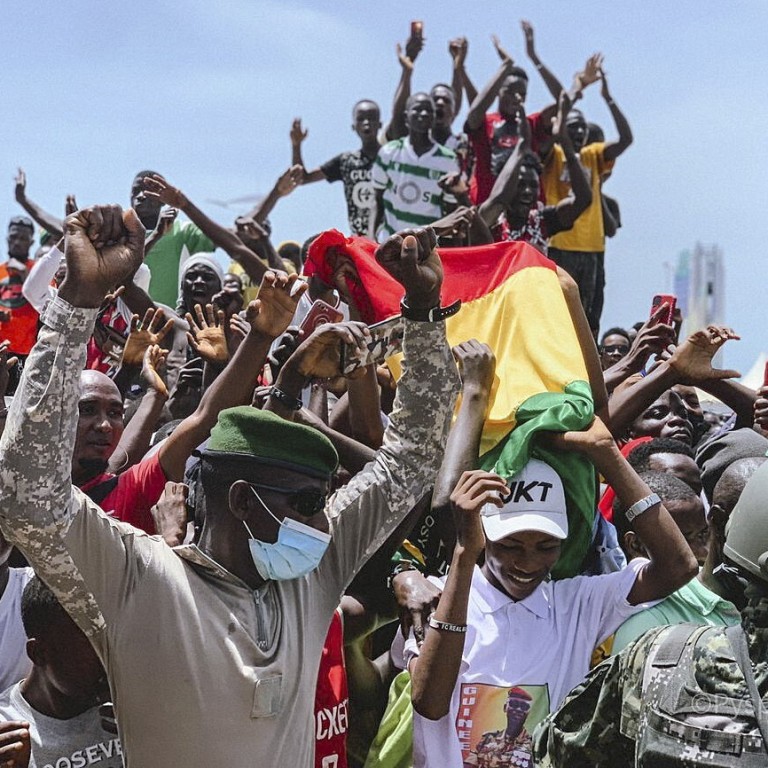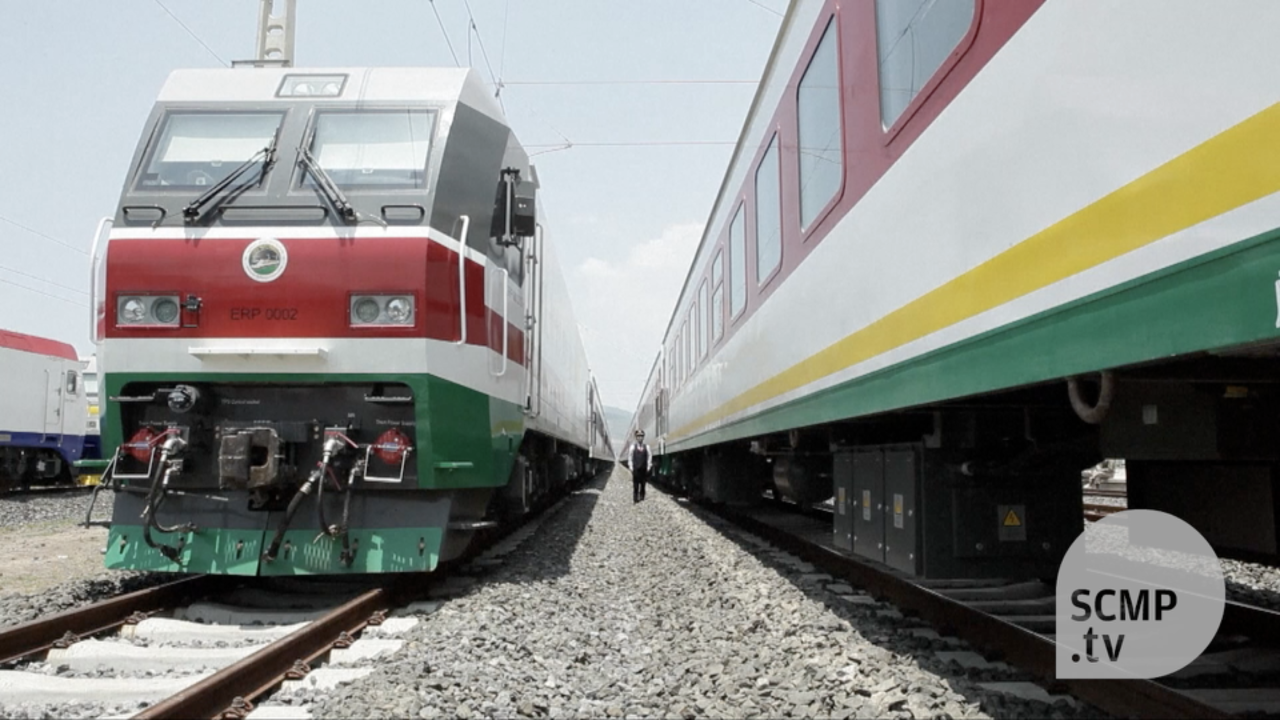
Is time up for China’s non-interference take on overseas coups?
- For decades, Beijing has hewed to the rhetoric of not meddling in the affairs of other countries
- But calls for the release of Guinea’s former president appeared to turn that approach on its head
In a brief and direct statement, Chinese foreign ministry spokesman Wang Wenbin said “China opposes coup attempts to seize power and calls for the immediate release of president Alpha Condé”.
But analysts say security and geopolitical challenges to China’s investments in Africa and parts of Asia are putting the policy to the test.
The policy goes back to the 1950s and has been used to present China as an alternative to other powers, according to Lukas Fiala, project coordinator of China Foresight at the LSE IDEAS think tank and a doctoral candidate at the London School of Economics.
It was part of a broader push to promote cooperation between developing countries in Asia and Africa.
“In China’s diplomatic rhetoric, non-interference has featured repeatedly to frame China as a different external actor in comparison to European powers and the US,” Fiala said.
“In places like Africa, China uses non-interference rhetoric to present China as an all-weather friend of the developing world that prioritises win-win cooperation over economic conditionalities, diplomatic interference or military intervention.”
Will African conflicts threaten China’s business as usual approach?
And with those investments, have come risks.
Several African countries hosting major belt and road projects are embroiled in civil war while others have been rattled by military coups.
Money from Beijing has gone into massive infrastructure projects in all three countries, including into special economic zones, railway lines, highways, oil refineries and new cities such as the administrative capital city being built in Egypt.
Several other countries including Mali, Niger and Mozambique, where China has huge interests have been affected by coups and insurgency.
Analysts said Beijing had opposed coups in the past, voicing opposition to military seizures of power in Mali in 2012, Guinea-Bissau in 2012, and the Central African Republic in 2013.
But those instances have been rare.

01:12
Ethiopians flee to Sudan to escape escalating conflict in Tigray region
And then came Guinea.
Fiala said China’s initial diplomatic response to the Guinea coup was seen as untypically harsh and direct, and differed from its reaction to others, such as the coup in Sudan.
He said the response was likely driven by economic interests.
“China relies on Guinea for a significant proportion of its bauxite imports needed to make aluminium, which means that key economic interests were at stake,” he said, adding that “these rhetorical changes should not be overemphasised”.
As China’s rapprochement with the Taliban in Afghanistan showed, “Beijing generally adopts a pragmatic approach to working with local elites to preserve Chinese interests and foster stability where possible to protect Chinese investments”, Fiala said.
China relies on Guinea for a significant proportion of its bauxite imports needed to make aluminium, which means that key economic interests were at stake
Jason Li, research associate at the Stimson Centre’s East Asia Programme, said China might have felt it had less to lose in criticising the coup in Guinea because Guinea was a small, developing country and a trading partner.
“China is a critical export destination of Guinean bauxite ore, which could determine the forcefulness of the foreign ministry’s official response to the coup,” Li said.
“Chinese resource investments in and imports from Africa represent an important component of its relationship with the continent.”
But it was troubling that the Chinese foreign ministry felt free to criticise countries in Africa rather than other regions, he said.
“It does not fit well with its push to deepen Sino-African relations or be a champion for the developing world. These cases show China violating its self-purported policy of non-interference,” he said.
Guinea coup adds to growing knots in China’s belt and road plans
He said that as China strived to be a global influence and protect its expanding interests, the contours of “non-interference” in others’ internal affairs would be difficult to balance.
“Beijing can’t have its cake and eat it too,” Li said. “A strictly Wolf Warrior posture could drive the foreign ministry to respond to domestic policy issues in other countries more definitively.”
Li added that “Beijing’s adherence to its non-interference policy could be growing less important to Beijing, but it could still push the rhetoric of being a ‘developing world’ power in contrast to the West”.
Fiala, from the LSE said China’s policy of non-interference had never lived up to its rhetoric.

00:59
Chinese-built railway links Ethiopia to sea
He said that under Mao Zedong, China “interfered” with domestic political events in the Global South by supplying military training and weapons to revolutionary independence movements in Africa and supported secessionist movements in places such as Zanzibar.
He said China continued to stress the importance of local political solutions to military interventions, such as through the African Union for African countries.
“But Beijing has also been confronted with the realities of political risk in emerging markets as Chinese companies and citizens are increasingly operating and travelling abroad. And these experiences have required China to become more actively involved,” Fiala said.

